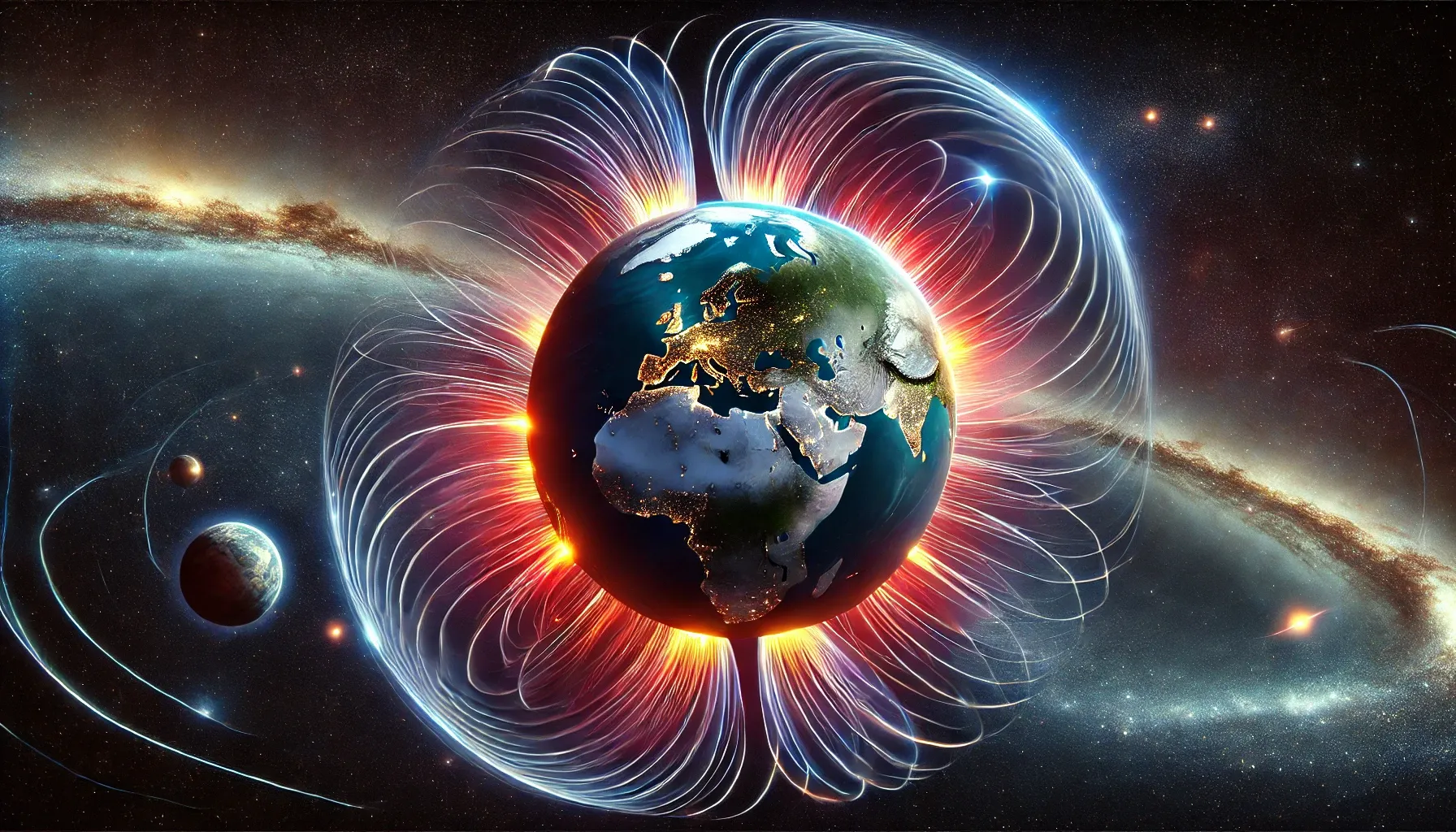UPSC
Exam Nugget
Earth’s Natural Particle Accelerator
Last Updated
20th March, 2025
Date Published
11th March, 2025
Share This Post With Someone

Context:
This analysis explores how Earth’s magnetosphere, interacting with solar wind, acts as a natural particle accelerator, accelerating electrons to ultra-high energies. This discovery, detailed through NASA mission data, enhances understanding of cosmic rays and has implications for space science and India’s space endeavors.
- Natural Accelerator: Earth’s bow shock and foreshock, formed by solar wind hitting the magnetosphere, accelerate electrons to extreme speeds, mimicking lab-based particle accelerators.
- Energy Surge: On December 17, 2017, electrons in the foreshock gained over 500 keV, reaching 86% of light speed (from a typical 1 keV), observed by NASA’s MMS, THEMIS, and ARTEMIS missions.
- Mechanism: Diffusive shock acceleration, aided by plasma waves and transient structures in the bow shock, boosts electrons to relativistic energies, solving the “electron injection problem.”
- Cosmic Ray Link: Suggests planetary shock waves interacting with stellar winds could contribute to cosmic ray origins, typically attributed to supernovae or black holes.
- Data Insight: Real-time mission data ruled out solar flares or coronal mass ejections, pinpointing bow shock dynamics as the energy source.
- Scientific Impact: Enhances understanding of particle acceleration in space, relevant to stellar astrophysics and India’s space missions like Aditya-L1 studying solar interactions.
Key Terms:
- Bow Shock: Region where solar wind slows upon hitting Earth’s magnetosphere.
- Foreshock: Upstream area of bow shock with turbulent particle activity.
- Solar Wind: Stream of charged particles emitted by the sun.
- Diffusive Shock Acceleration: Process boosting particle energy via shock waves.
- Magnetosphere: Earth’s magnetic field region shielding against solar wind.
- Cosmic Rays: High-energy particles from space, often relativistic.
- Aditya-L1: India’s mission to study solar phenomena and space weather.
Link To The Original Article – https://www.thehindu.com/sci-tech/science/looking-for-a-powerful-particle-accelerator-theres-one-near-earth/article69281649.ece

UPSC
The Hindu Briefs